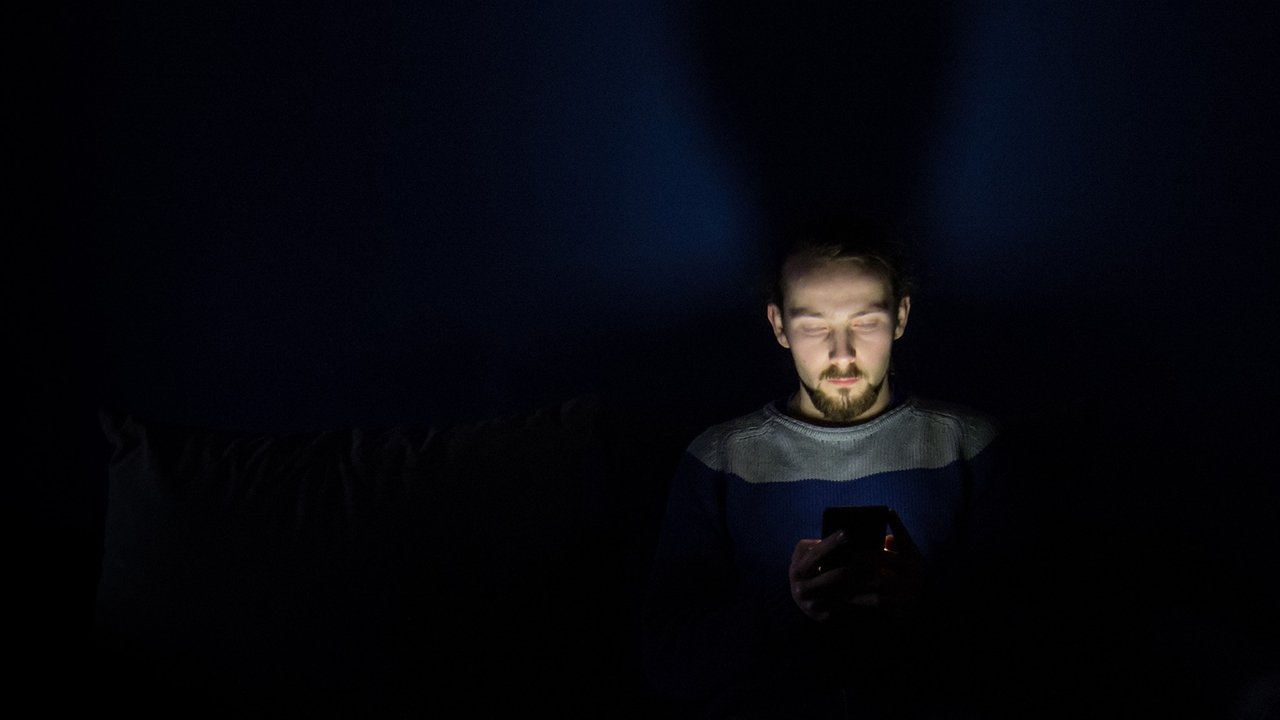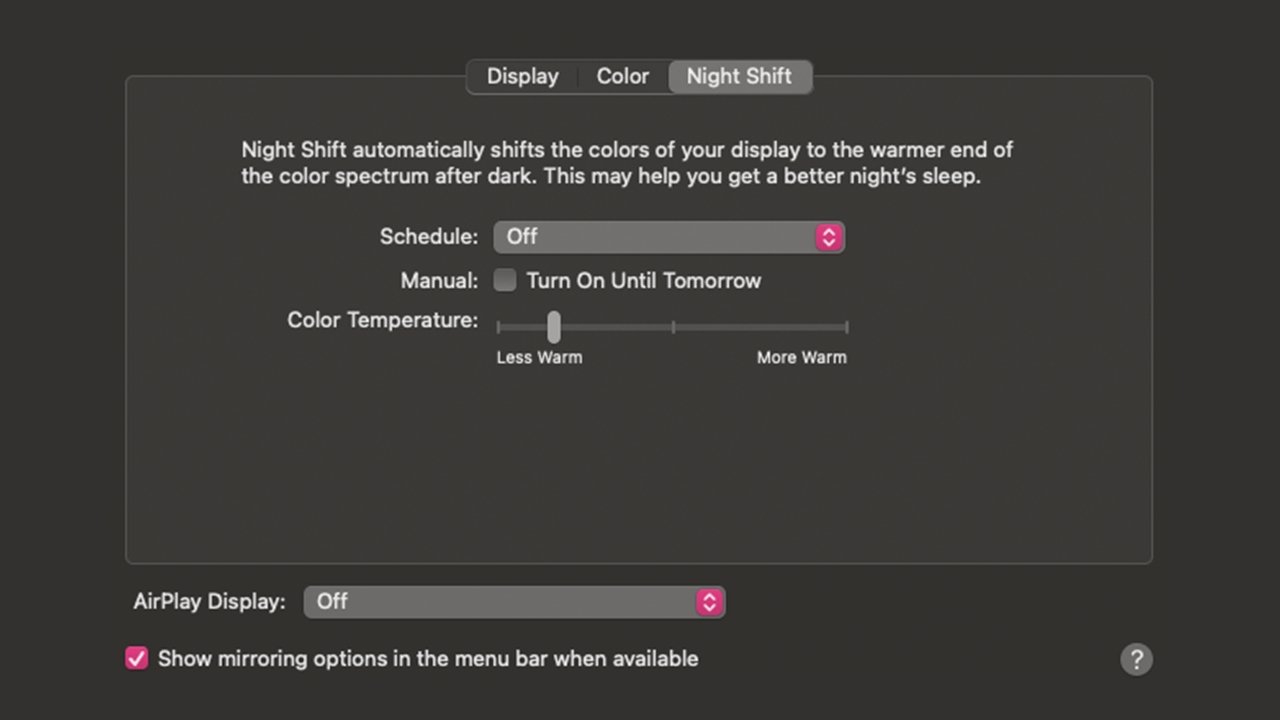New study finds that Night Shift does not improve sleep quality or quantity
A new sleep study from Brigham Young University has found that features like Night Shift do little to improve users' sleep quality over those who don't use the feature.
Features like Apple's Night Shift are designed to shift the light emitted from your devices away from the blue light spectrum. In addition to supposedly being better for your eyes, many device manufacturers also claim that this helps improve users' sleep quality.
However, a new sleep study performed by Brigham Young University challenges that claim, showing that Night Shift and similar features don't improve sleep quality or the hours of sleep an individual gets.
The study included 167 adults ages 18 to 24 who self-reported using their phones daily. The participants were asked to spend at least eight hours in bed and had to wear an accelerometer on their wrist to record their sleep.
Psychology Professor Chad Jensen and his research team divided users into three groups: those who were asked to use their phone with Night Shift turned on, those who used their phones without it, and those not allowed to use their phones before bed.
"In the whole sample, there were no differences across the three groups," Jensen said. "Night Shift is not superior to using your phone without Night Shift or even using no phone at all."
While the three groups showed no differences in sleep outcomes, the researchers grouped the participants into two groups — those who averaged seven hours of sleep or more and those who slept less than six.
Those who slept seven hours or more saw improved sleep quality over those who used their phones, regardless of whether Night Shift was activated.
There was also no difference between Night Shift and normal phone use in the group that slept less than six hours of sleep per night.
The research suggests that the problem, the problem is stimulation, not light. Users who text, scroll, and post are often too psychologically stimulated, causing them to stay awake longer, reducing overall sleep quality.
"While there is a lot of evidence suggesting that blue light increases alertness and makes it more difficult to fall asleep, it is important to think about what portion of that stimulation is light emission versus other cognitive and psychological stimulations," said Jensen.
Those looking to improve their sleep quality should reduce the amount of time they use electronics before bed.
A similar study was done in 2019, which showed that a users phone screen brightness, not color temperature, likely played a bigger role in disrupting sleep quality.
 Amber Neely
Amber Neely












 Malcolm Owen
Malcolm Owen
 William Gallagher and Mike Wuerthele
William Gallagher and Mike Wuerthele
 Christine McKee
Christine McKee
 William Gallagher
William Gallagher

 Marko Zivkovic
Marko Zivkovic









